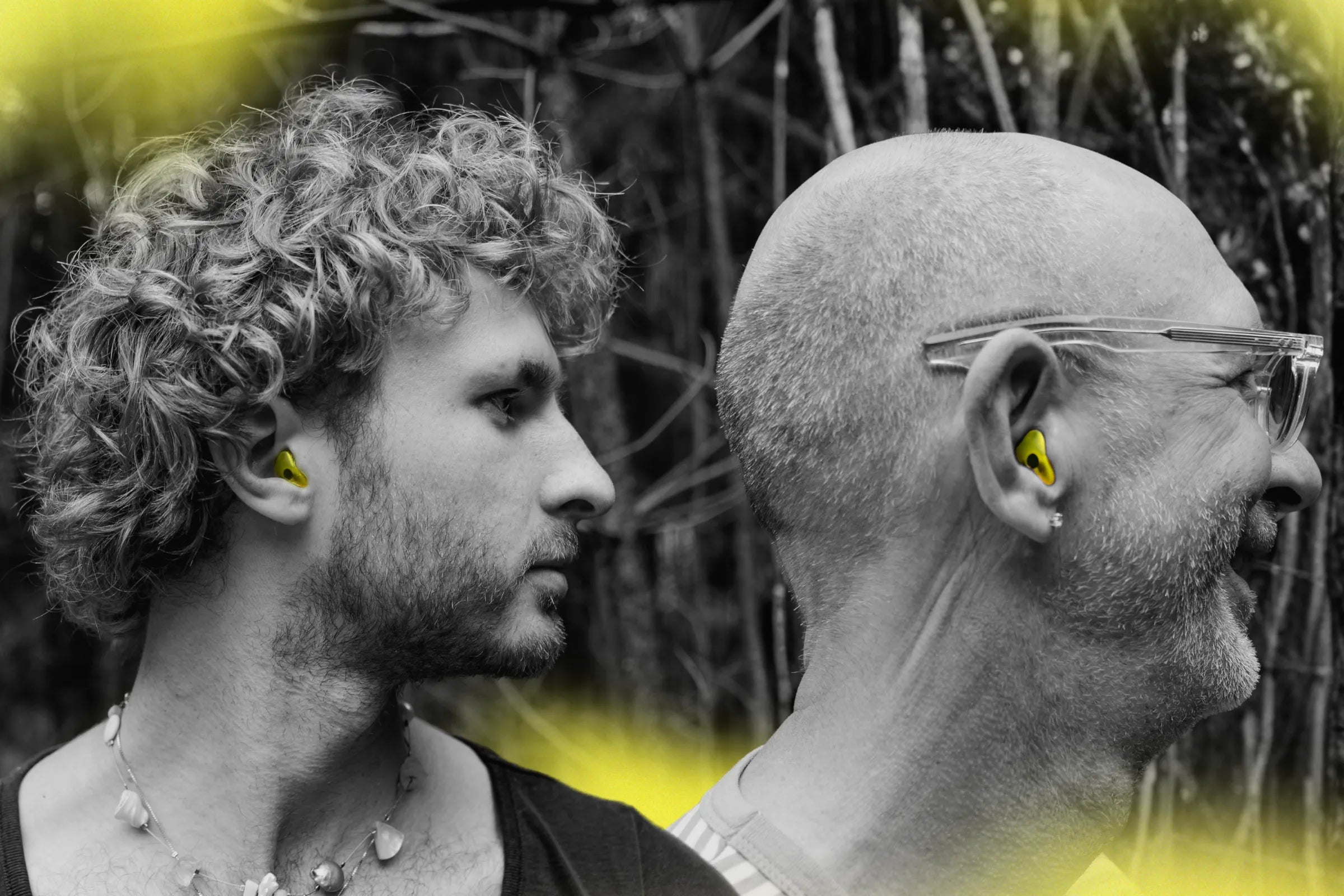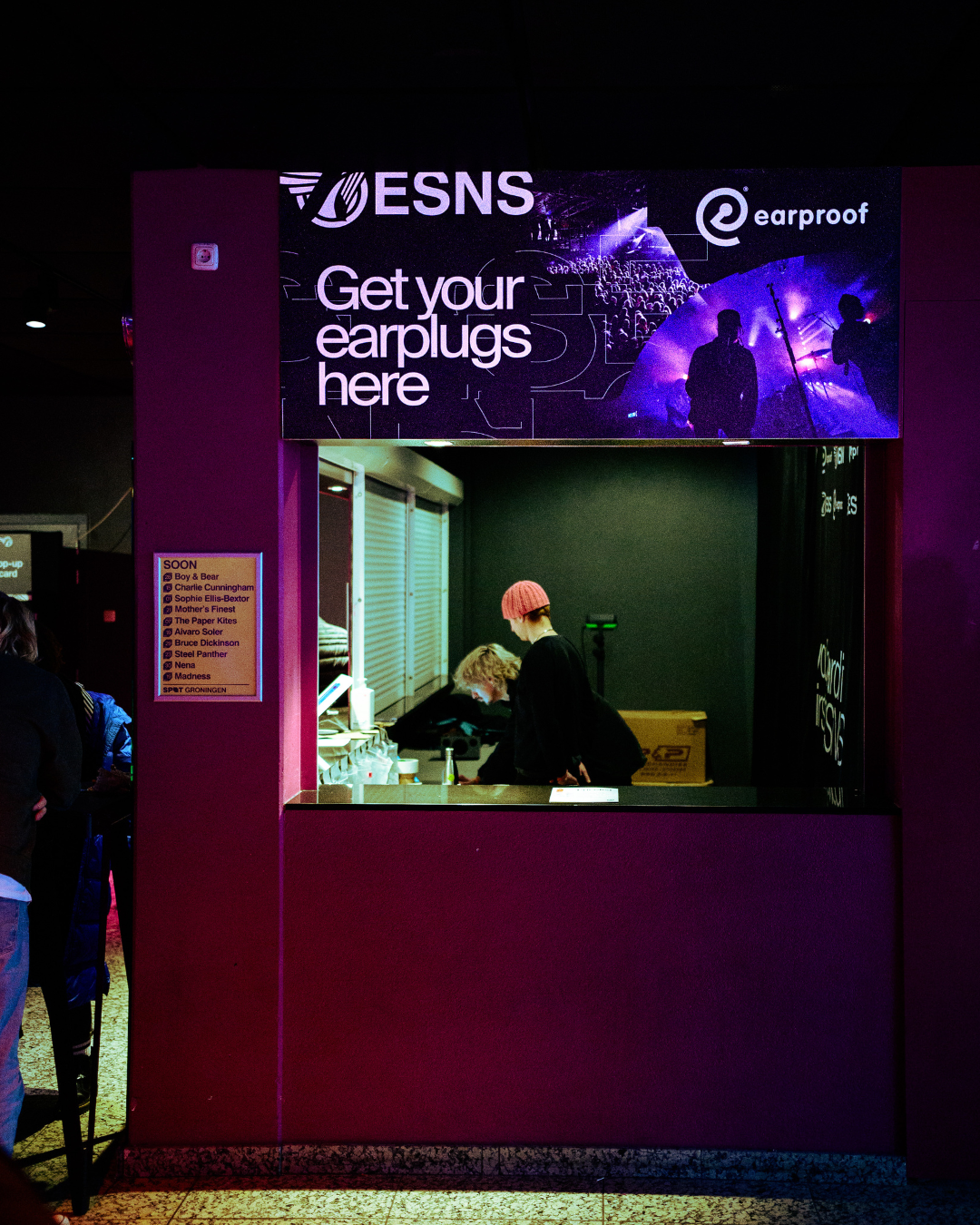“Peter, you’re on TV!”. Our TV isn’t on very often, so we quickly switched to NPO3.
‘Sophie in de Mentale Kreukels’ was on. For those unfamiliar with Sophie Hilbrand, she's well-known for addressing all kinds of societal taboos. And whilst I was attending a convention at Vlietland hospital during the ‘Week of the Ear’, Sophie was recording for her show. Today, she’s discussing challenges and mental health problems related to stress. And she’s shedding light on one of the main reasons our work at Earproof is so important: tinnitus.
This episode features me and some brief statements about living with tinnitus, a real challenge, which I’m reminded of daily. In the aftermath of the show, people in my network started reaching out with similar questions. So I’ve written them down here to answer everyone and hopefully spread even more awareness.
Conversations usually start like this:
I didn’t know you had a beep in your ear. I’ve never heard you mention that before?
For starters, people suffering from tinnitus don’t usually go around shouting it from the rooftops. It’s bad enough having to go day by day with a high-pitched whistle in your head, I try to distract myself as much as I can.
Do you hear it all the time?
Absolutely. It never gets quiet. Not when I travel, not when I eat, not even when I sleep. It’s exhausting. I never wake up fully rested. My brain is simultaneously producing and processing the sound. This results in a constant state of stress because your brain senses a danger signal.
Is tinnitus the reason you started Earproof?
No. My symptoms began when I had already started Earproof. To be honest, though, the tinnitus has motivated me even more to continue Earproof's mission. Everyone should use earplugs to prevent tinnitus or hearing damage.
How does your beep sound? Difficult to say. If you have ever experienced a beep or whistle after a night out, you'll know what I’m talking about. It’s loud, high-pitched and f*cking annoying. Night after night, I’d come home from nights out at Roxy Amsterdam with this beep. “Great night,” I’d think—without knowing that one day I’d hear it 24/7.

What causes the beep? This tinnitus is caused by a disruption in the nerve transmission. The hair cells’ functionality is damaged, and they can’t recognize their function. This leads to confusion in the brain and thus to the brain starting to produce the sound itself. This is also known as a ‘phantom sound’.
Is it curable?
As far as we know, there is no cure for tinnitus. Sometimes the symptoms decrease a little, but it doesn’t fully disappear. My credo is to protect your ears so you don’t get into trouble of some sort!
Doesn’t it drive you completely insane?
Not anymore. I have accepted and embraced the beep. It’s part of me now. But when I die, I hope it'll be; ‘...and all was quiet’.
Seriously, if I’d known wearing protection for your ears would prevent tinnitus, I would’ve paid ten million to get earplugs. Now my mission is to at least save ten million ears.
Learn more about tinnitus and how to protect yourself against it.






Share:
The Surfoloog: “The Best Earplugs for Surfers”
Week of Tinnitus